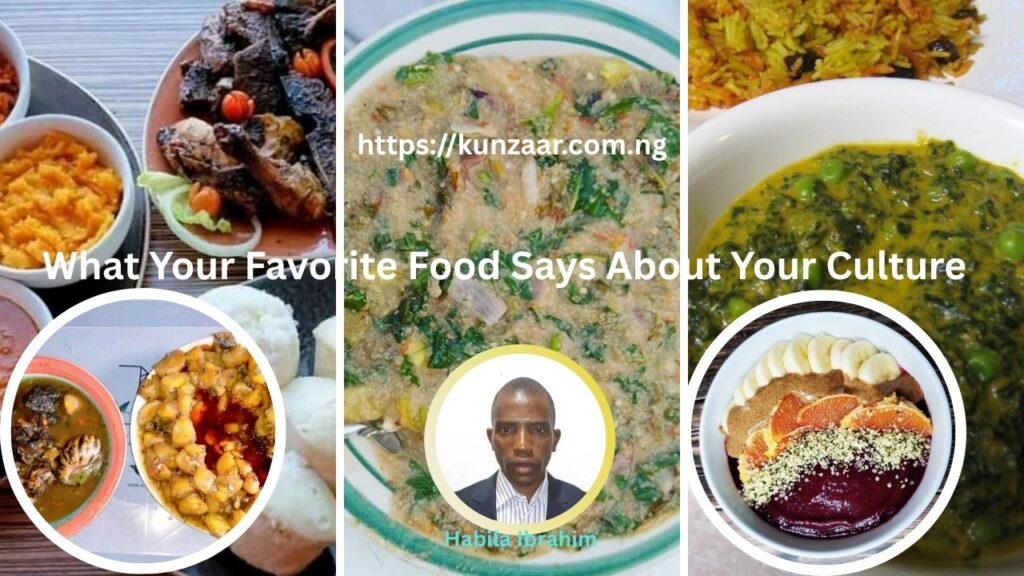Introduction
Food is far more than sustenance—it’s a symbol, a story, and a cultural signature. The dishes we crave, cook, and celebrate often speak volumes about our tribe, backgrounds, beliefs, and shared experiences. But what exactly does your favorite food say about your culture and tribe?
In this article, we will dive deep into the powerful connection between food and cultural identity, and why your go-to meal may be telling the world more about you than you realize.
Also Read: The Tuareg Tribe And Also The Desert Nomads of the Sahara
1. Food as a Cultural Expression
Every culture has its unique flavor. From Nigeria’s jollof rice or tuwon acha to Japan’s sushi or Italy’s pasta, the foods we love are expressions of centuries of tradition, environment, and innovation.
Traditional recipes passed down from one generation to another preserve language, culture, tribe, family structure, and societal roles.
The way we prepare and eat our food—spices used, meal times, and sharing customs—are all cultural identifiers.
If you love spicy suya or pepper soup, chances are you been part of a culture that values bold flavors and communal eating.
2. Regional Ingredients = Cultural Roots
Your favorite ingredients often reveal where you’re from or what your family values are. For example:
- Cassava, millet, and plantain are staples in many African countries.
- Rice and soy dominate East Asian diets.
- Corn and beans are beloved in Latin American homes.
These ingredients aren’t just about flavor—they’re shaped by local geography, climate, and history.
3. Family and Festive Foods Reflect Traditions
Every culture and tribe have a special meal. These special meals are cooked during festivals, weddings, or naming ceremonies say a lot about cultural priorities. We have few questions for you:
Is your favorite dish one tied to a religious holiday or family gathering?
Do you associate it with warmth, storytelling, or music?
Such meals often carry emotional and spiritual meaning, reinforcing one’s identity and community connection.
For example, enjoying pounded yam and egusi soup on Sundays may signal deep ties in some Nigerian customs of family bonding and tradition. So also, some tribe have their special meals that is occasioned for a certain period or celebration.
4. Food Habits and Etiquette Speak Loudly
Beyond taste, how you eat—with chopsticks, hands, or cutlery—also hints at your upbringing, tribe or environment. Some culture emphasizes eating with hands to signified respect for food. So also does:
- Eating together or alone
- Saying prayers before meals
- Treating guests with specific dishes
Your food etiquette is a subtle but strong reflection of your values and upbringing.
5. Globalization and Fusion Cuisine
As people migrate and cultures blend, our plates have become more diverse. Still, most of us keep going back to the comfort foods of our childhood. Why?
- These dishes represent identity, memory, and home.
- They offer emotional security, especially in multicultural or foreign environments.
Even in a global world, our favorite foods anchor us.
Why It Matters A lot?
Understanding what your favorite food says about your tribe or culture isn’t just personal—it’s a window into how food connects humanity. Among such connections are:
- It promotes cultural appreciation.
- It fosters inclusivity.
- It helps preserve heritage in modern times.
You Can Also Read: Understanding Fractions Made Easy
Our Final Thoughts
Next time you crave your favorite meal, think beyond the flavor. Ask yourself these questions:
- Where does this dish come from?
- Who first introduced it to me?
- What stories, songs, or people are connected to it?
You’ll likely discover that your favorite food is more than just delicious—it’s a cultural treasure that you cherish most.
Key Takeaways For This Post:
- Food reveals cultural history, values, and social structures.
- Favorite dishes often link to family, festivals, or spiritual beliefs.
- Eating habits and ingredients vary regionally and tell stories of identity.
Even in modern or global societies, food ties us to our roots.

